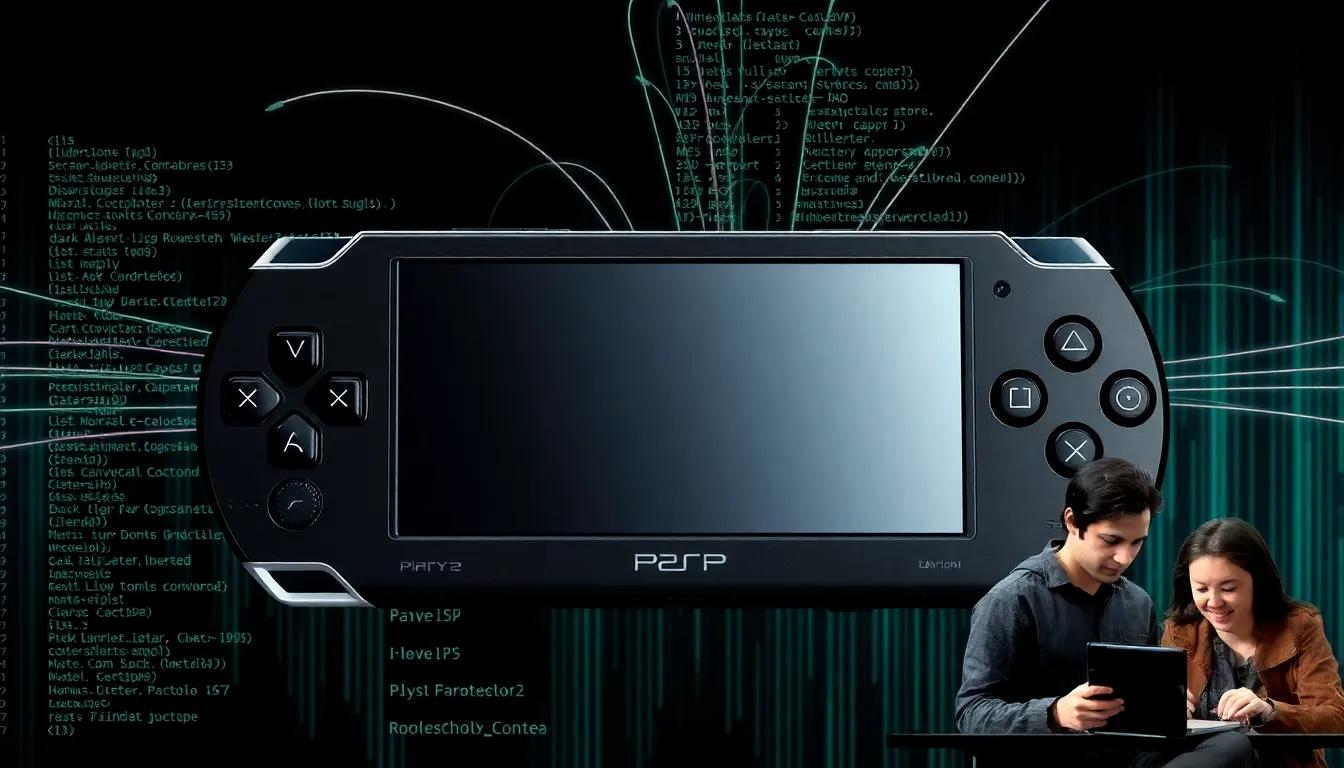In a world where gaming consoles often feel like closed boxes, the PSP homebrew community stands out as a vibrant playground for creativity and innovation. Imagine unlocking the full potential of your gaming device, transforming it into a versatile entertainment hub. That’s exactly what this passionate community does, pushing the boundaries of what’s possible and turning the humble PSP into a canvas for endless possibilities.
Table of Contents
ToggleOverview of the PSP Homebrew Community
The PSP homebrew community consists of developers and fans who create custom applications and games for the PlayStation Portable. This vibrant community emerged as gamers sought to expand the functionality of their devices beyond official features. By allowing users to run homebrew software, it transformed the PSP into a fully customizable entertainment system.
Contributions from community members include a wide range of software, such as emulators, game ports, and multimedia applications. Emulators enable users to play games from other consoles, effectively broadening the gaming experience. Game ports bring popular titles to the PSP, showcasing the community’s dedication to enhancing gaming options. Multimedia applications allow users to play music, watch videos, and view images, turning the handheld console into an all-in-one device.
Many developers share their projects openly, fostering collaboration and innovation. Tutorials and resources are widely available, making it easier for newcomers to join the community. Users can participate in forums and discussions to resolve issues and share insights, creating a supportive environment for learning.
Furthermore, custom firmware plays a crucial role in the homebrew scene. Alternate firmware enhances the capabilities of the PSP, enabling the installation and execution of homebrew software. Many believe that custom firmware is key to unlocking the full potential of the device, effectively expanding its use beyond official limitations.
The PSP homebrew community continues to thrive, driven by creativity and technological advancement. Individual contributions and collaborative efforts result in a continually evolving library of software, reflecting the community’s ongoing commitment to innovation.
History of PSP Homebrew Development

PSP homebrew development showcases its evolution through key milestones and the contributions of influential figures. Development began shortly after the PSP’s release in 2004, with early efforts aiming to enable custom software on the device.
Key Milestones
2005 marked a significant year with the release of custom firmware, which opened new possibilities for running homebrew applications. In 2007, the introduction of the first public homebrew emulator allowed users to play classic games on the PSP, enhancing its appeal. The launch of popular homebrew apps like PSPRadio and Lua Player in the same year further enriched the homebrew ecosystem. By 2009, the scene saw an explosion of tools and resources available online, empowering developers to create more complex projects. The formation of dedicated forums and communities also facilitated collaboration and knowledge sharing, solidifying the PSP homebrew community’s foundation.
Influential Figures
Several key individuals played crucial roles in the PSP homebrew development. Dark Alex, a prominent developer, created custom firmware that became the gold standard for enhancing the PSP’s capabilities. His work allowed users to run unsigned code, revolutionizing the scene. Another important figure, Wololo, contributed notable homebrew projects and built a bridge between developers and users through his website. Additionally, individuals like Fanjita and the Noobz team worked on exploiting vulnerabilities in the PSP, which led to breakthroughs in homebrew capabilities. Together, these influential figures helped shape the homebrew landscape, fostering a vibrant and innovative community.
Popular Homebrew Applications
The PSP homebrew community boasts numerous applications enhancing the gaming experience. Two categories stand out: games and utilities.
Games
Various games created by the homebrew community offer unique experiences. Popular titles include “Doom PSP,” which ports the classic first-person shooter, and “Quake,” showcasing advanced graphics for its time. “Lamecraft,” a Minecraft clone, provides endless creativity, allowing players to build their worlds. Another noteworthy mention is “PSP Quake 3,” delivering fast-paced multiplayer action. Homebrew games expand the library, catering to nostalgic gamers and introducing new genres.
Utilities
The utility applications within the PSP homebrew scene enhance device functionality. “USB Charge,” for example, facilitates trickle charging when connected to a computer. “PSPPower,” a power management tool, optimizes battery life by adjusting system settings. Additionally, “PSP Filer” acts as a file management tool, enabling users to explore memory card contents effortlessly. Other utilities support multimedia playback and system modifications. These applications exemplify the versatility of the PSP, transforming it into a multifunctional device.
Challenges Faced by the PSP Homebrew Community
The PSP homebrew community encounters several challenges that impact its growth and sustainability.
Legal Issues
Legal obstacles pose significant threats to the PSP homebrew community. Copyright laws often hinder the distribution of homebrew applications, as creators may inadvertently infringe on proprietary content. Developers face uncertainty regarding the legality of custom firmware and software that modify original system functions. Copyright holders occasionally take action against developers, leading to project shutdowns and discouragement among potential contributors. The community must navigate these ambiguous legal landscapes to ensure creative freedom while minimizing risk.
Technical Limitations
Technical limitations also challenge the PSP homebrew community. Developers contend with hardware restrictions that influence software performance and capabilities. Memory constraints and processing power govern what applications can achieve, often resulting in suboptimal experiences. Compatibility issues with various firmware versions complicate testing and deployment of homebrew applications. Additionally, the PSP’s aging architecture makes it harder for newer projects to meet modern technological standards. As a result, the community continues to adapt and innovate within these confines.
Impact on Gaming Culture
The PSP homebrew community significantly shapes gaming culture by encouraging user creativity and innovation. Contributions from developers extend the device’s functionality, creating a unique ecosystem that fosters collaboration. Expandability draws in enthusiasts who appreciate customizing their gaming experiences, enhancing overall enjoyment.
Open sharing of projects and resources fosters a learning environment. Tutorials and forums assist newcomers in navigating homebrew development, while seasoned developers refine their skills. With this support structure, the community promotes inclusivity, allowing individuals with various expertise levels to contribute.
Popular homebrew applications exemplify the community’s impact on gaming culture. Titles like “Doom PSP” and “Quake” bring classic experiences to a portable platform. These games attract both nostalgic players and new audiences, showcasing the diversity of the library.
Utility applications also play a vital role in enhancing device capabilities. Tools like “PSP Filer” and “USB Charge” improve battery life and file management, catering to user needs. Such enhancements showcase the versatility of PSP, transforming it from a gaming console to a multifunctional device.
Despite facing challenges, including legal issues and technical limitations, the community remains resilient. Navigating copyright laws can be daunting, yet developers continue pushing boundaries. Hardware restrictions may hinder some projects, but innovation thrives as creators adapt and find solutions. Overall, the persistent evolution of the PSP homebrew community enriches the broader gaming landscape.
The PSP homebrew community stands as a testament to creativity and innovation in gaming. Its ability to transform the PSP into a multifunctional device showcases the passion of its developers and users. By continually pushing boundaries and sharing knowledge, this vibrant community enriches the gaming experience for all.
Despite facing legal and technical challenges, the resilience of the community ensures its ongoing evolution. The impact of popular homebrew applications and the collaborative spirit foster an environment where creativity thrives. As the landscape of gaming continues to change, the PSP homebrew community remains a crucial part of that journey, inspiring both new and experienced developers alike.




